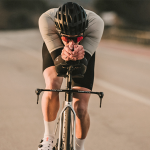Backpacking stoves have been a quintessential part of the camping experience ever since enthusiasts began frowning upon using wood from campsite trees for cooking. While campers debated the pros and cons of canister versus liquid fuel, iconic stoves like the Primus and the MSR Whisperlite became the choices for generations of camp gourmets.
Although existing stoves worked well in most cases, a spate of innovations has many campers considering replacing their favorites with lighter and more efficient models.
Drew Keegan, product manager of stoves at MSR, comments, “All the manufacturers are rethinking how things are packaged. Consumers want [stoves that] are smaller, lightweight and offer ease-of-use features. Most of the advancements you are seeing in the stove market reflect that. There have been more new canister stove introductions in general than liquid fuel.”
John Smithbaker, president of North American Gear, the exclusive distributor of Primus stoves, sees another shift. “In the past, the measure of success [for stoves] was BTUs. That doesnt come up any more,” he says. “Now its weight-to-fuel ratios, efficiency and boiling times. We have to present product information in different ways, like how many liters of water can you boil with X brand stove and fuel.”
Perry Dowst who, with Dwight Aspinwall, invented the Jetboil Personal Cooking System, reports, “Prior to entering the market in 2004, the stove category was pretty quiet. The PCS was a system, not a stove or a piece of cookware. By virtue of some of the technology we created, like the Flux ring, the PCS changed the landscape pretty quickly for the camping stove category.” In 2008, Jetboil introduced the Helios, a system aimed at larger groups of campers.
Brands including Primus and MSR have offered innovations reflecting their interpretation of the markets needs. Smithbaker believes efficient use of fuel is a key sales driver. He states, “Traditional stove efficiency is about 40 percent and our new ETA line goes between 80 and 85 percent. The result of higher efficiency is quicker cooking time. It keeps the cost down and improves the overall enjoyment of the cooking experience.”
For backpackers, increased efficiency also affects weight. “Reducing the weight has a strong appeal,” says Smithbaker. “If you can take 50 percent less fuel with you, thats a big deal, or you can spend 50 percent more time in the field with the same weight.” Primus is also addressing broader environmental issues. “Were trying to make up the difference in the 15 to 20 percent efficiency of the ETA by purchasing carbon offsets to support rainforests in Costa Rica,” says Smithbaker.
Todays new stoves offer more control, lighter weight and greater efficiency. They have not, however, prevented impatient campers from burning the rice.















